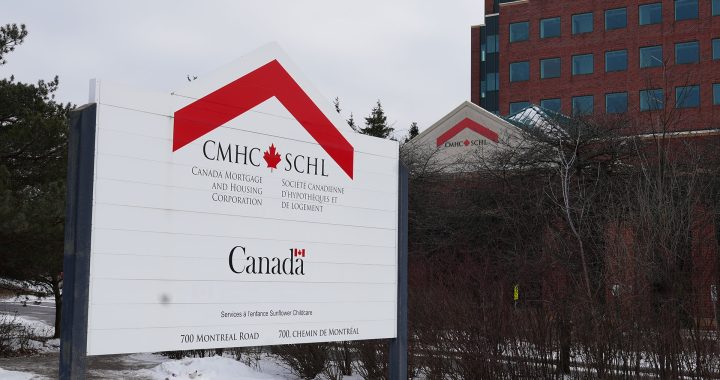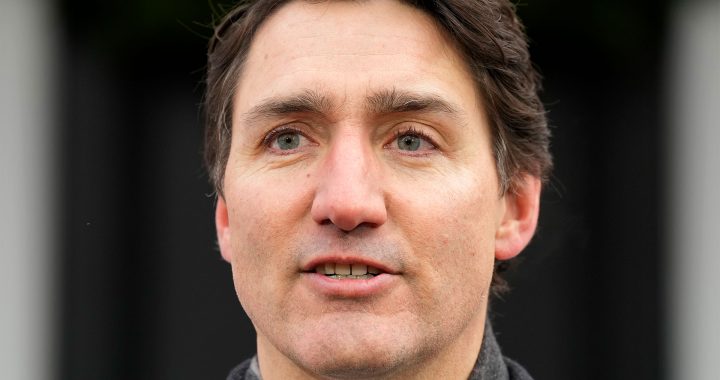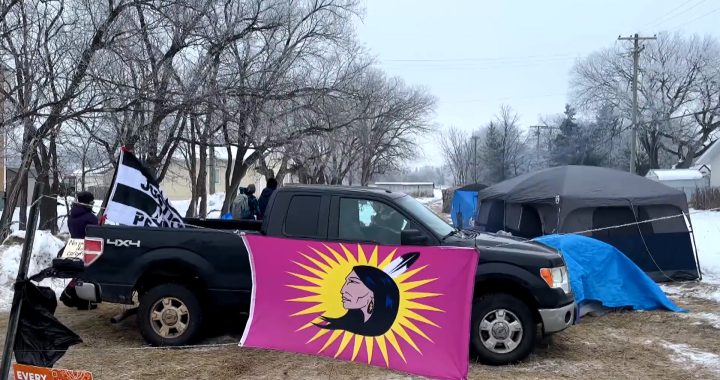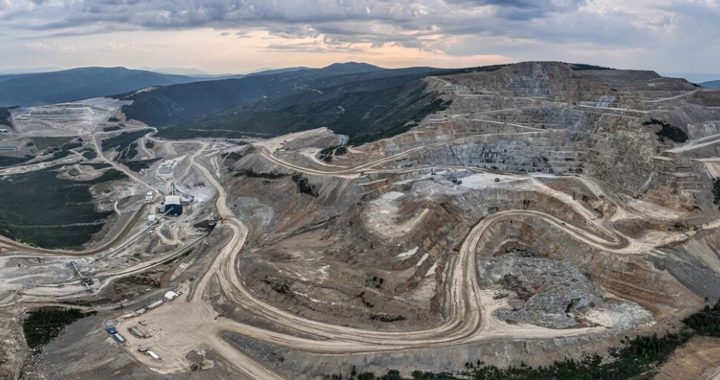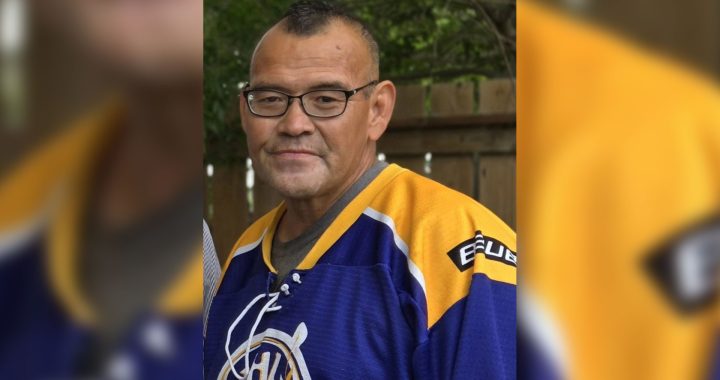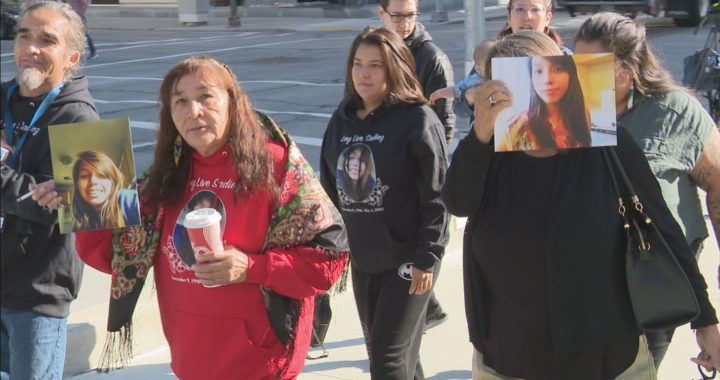In 2015 Justin Trudeau was the prime minister who showed up on Halloween dressed up with his children, jogged, posed for selfies with people on the street and importantly for some Indigenous Peoples, was not Stephen Harper.
The Harper government had sparked #IdleNoMore, one of the longest-sustained chains of Indigenous protests across the country. It was a reaction to omnibus legislation that, in part, deregulated environmental protections under the Navigable Waters Protection Act.
”Justin Trudeau was elected, in the wake of the biggest cacophony of Idle No More,“ said Niigaan Sinclair, a professor at the University of Manitoba and panelist on APTN News’ Truth and Politics segment.
Sinclair has written extensively about Trudeau in The Trudeau Legacy Promise v Performance.
On Monday, Trudeau announced that he was resigning as leader of the Liberal Party after a new leader was elected – and proroguing Parliament – meaning that all work in the House of Commons is now shut down.
“We got elected in 2015 to fight for the middle class and that’s exactly what we’ve done over the past years,” said Trudeau at his announcement on Monday. “We reduced their taxes, we increased the benefits to families, we made sure the economy was focused on working for everyone and not just a few and that has changed now. That has dropped poverty rates in Canada, that has brought more people into the workforce and that moved us forward on reconciliation.”
Prior to the 2015 election, there was a concerted effort at the grassroots level to get the Indigenous vote out, with people campaigning at powwows, and holding signs that read ABC (anybody but conservatives).
Voter turnout spiked by 15 per cent that election, a turnout so dramatic that some First Nations ran out of ballots.
And for Indigenous Peoples, Trudeau held promise, with the Liberals adapting language such as “colonialism” and “Nation to Nation.”
Shortly after his election, Trudeau promised to accept all 94 calls to action from the Truth and Reconciliation Commission and spoke to applause and cheers as he appeared to tear up after the TRC’s final report was released.
“In their mandate letters, I told government ministers that no relationship is more important to me and to Canada than the one with First Nations, the Métis nation, and Inuit peoples,” Trudeau said at the release of the TRC’s final report.
“Let me say it once again. I give you my word that we will renew and respect that relationship.”
Along with accepting the calls to action, Trudeau promised to embrace the United Nations Declaration on the Rights of Indigenous Peoples, better known as UNDRIP, launched the National Inquiry into Missing and Murdered Indigenous Women and Girls and accepted the conclusions that what was happening was a genocide.
And he apologized. A lot.
“For First Nations, Inuit, Métis Peoples, he is the most progressive prime minister in history, bar none,” said Sinclair. “There’s no competition, he’s the only one to really care. So therefore the bar for being the most progressive is extremely low.”
Like prime minister Stephen Harper before him, the Trudeau government spent millions fighting the Assembly of First Nations and the First Nations Child and Family Caring Society in court against allegations Canada discriminated against First Nations children living on reserve. In 2016, the Canadian Human Rights Tribunal ruled that the federal government did discriminate against them.
Trudeau appointed Jody Wilson-Raybould as justice minister and attorney general. The first Indigenous person to hold the position. Then he demoted her when she refused to go-along-to-get along on Trudeau’s demands to drop a criminal prosecution against SNC-Lavalin in Quebec, the province where his riding is located.
Trudeau put $4.6 billion into fixing First Nations water, but then snarked at protestors who showed up at a Liberal fundraising dinner protesting mercury poisoning at Grassy Narrows First Nation. Then, the next day, he apologized.
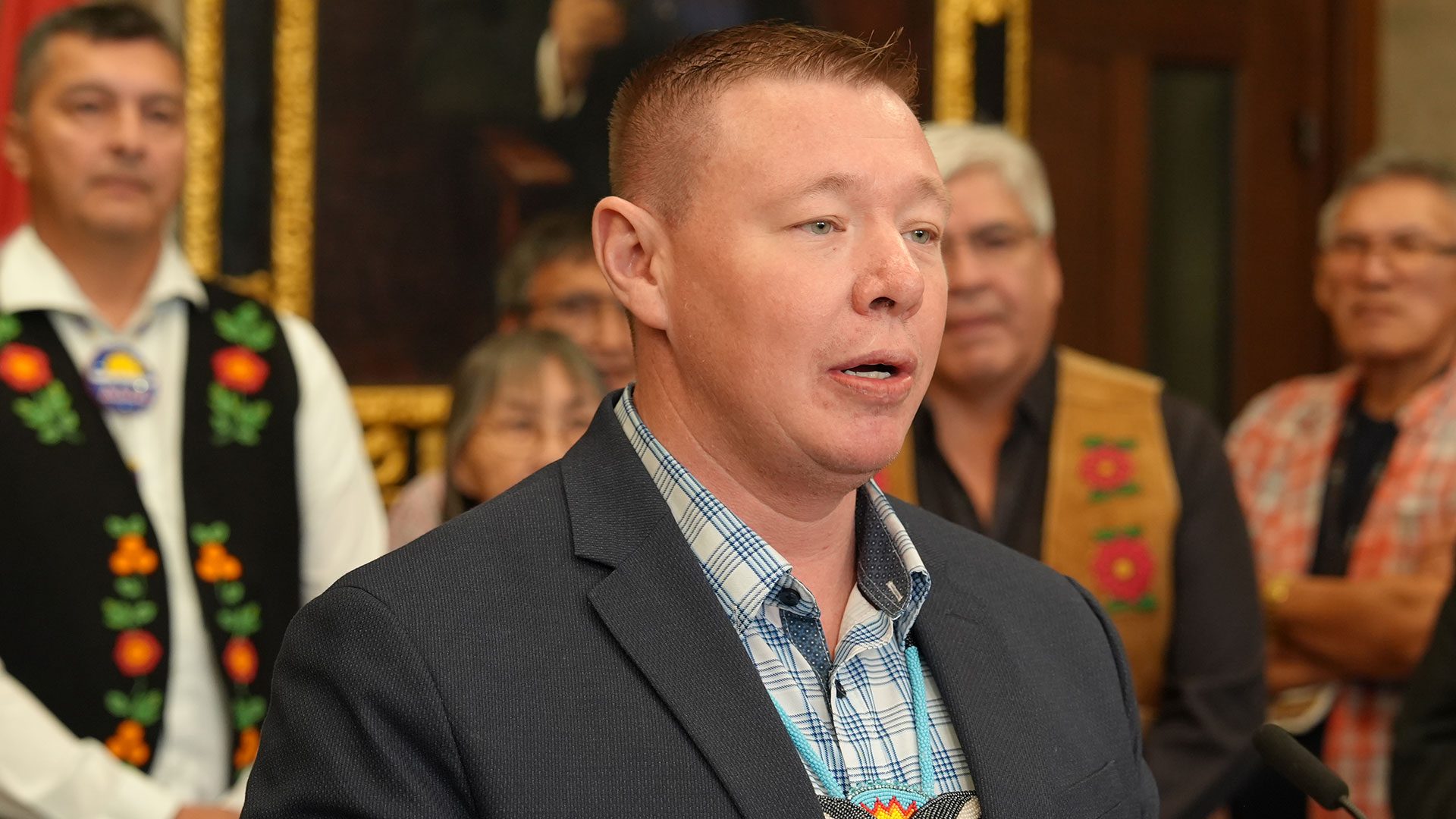
Jaime Battiste is the first Mi’kmaq to be elected to Parliament. He’s also the Parliamentary Secretary to the minister of Crown-Indigenous relations.
Despite being a Liberal MP, he learned about Trudeau’s resignation in the morning news.
Battiste points to highlights of Trudeau’s legacy including the creation of a National Day for Truth and Reconciliation and appointing the first Indigenous governor general.
“ I always felt like he listened,” Battiste told APTN. “I always felt like he cared and I always felt like he was doing his best to help advance reconciliation in this country.
“I think that that’s something that when you get a chance to work with someone, you get to be able to reflect about what were their greatest qualities and his greatest quality I believe is, you know, he cared.”
In a statement, AFN National Chief Cindy Woodhouse Nepinak praised Trudeau.
“During his decade in office, Prime Minister Trudeau has taken meaningful steps to address issues that matter to First Nations. His leadership brought attention to longstanding challenges and resulted in important progress in areas such as clean water, housing, education, and child welfare.
“The passing of the United Nations Declaration on the Rights of Indigenous Peoples Act was a milestone in aligning Canadian law with the rights and self-determination of First Nations,” said Woodhouse Nepinak.
“While much work remains, these actions have laid a foundation for future governments to build upon.”
Despite my political differences with Prime Minister @JustinTrudeau I’d like to thank him for his many years of service to Canada. Politics is a difficult journey, and I wish him well in his future endeavours.
We now have a real fight ahead of us against hateful extremism and…
— Leah ProudLakota (she/her) (@LeahGazan) January 6, 2025
Praise is also coming from other Indigenous quarters.
The president of the Manitoba Métis Federation said First Nations, Inuit and Métis Peoples in Canada have never seen a prime minister who has done as much for them as Trudeau.
David Chartrand said in his three decades in politics, Trudeau stands out for advancing Métis rights.
“Justin has been able to take those steps beyond everyone else. Recognizing the Red River Métis, our nation in the Prairies, recognizing the outstanding relationship we have within Canada…, but to find a prime minister that truly understands, recognizes and appreciates our place in Confederation and respects that, I don’t know if we’ll ever find another one like him,” Chartrand told APTN. .
As for who becomes the next prime minister, Chartrand said that person will have to acknowledge the contribution of the Métis in Canada.
Trudeau running hot and cold
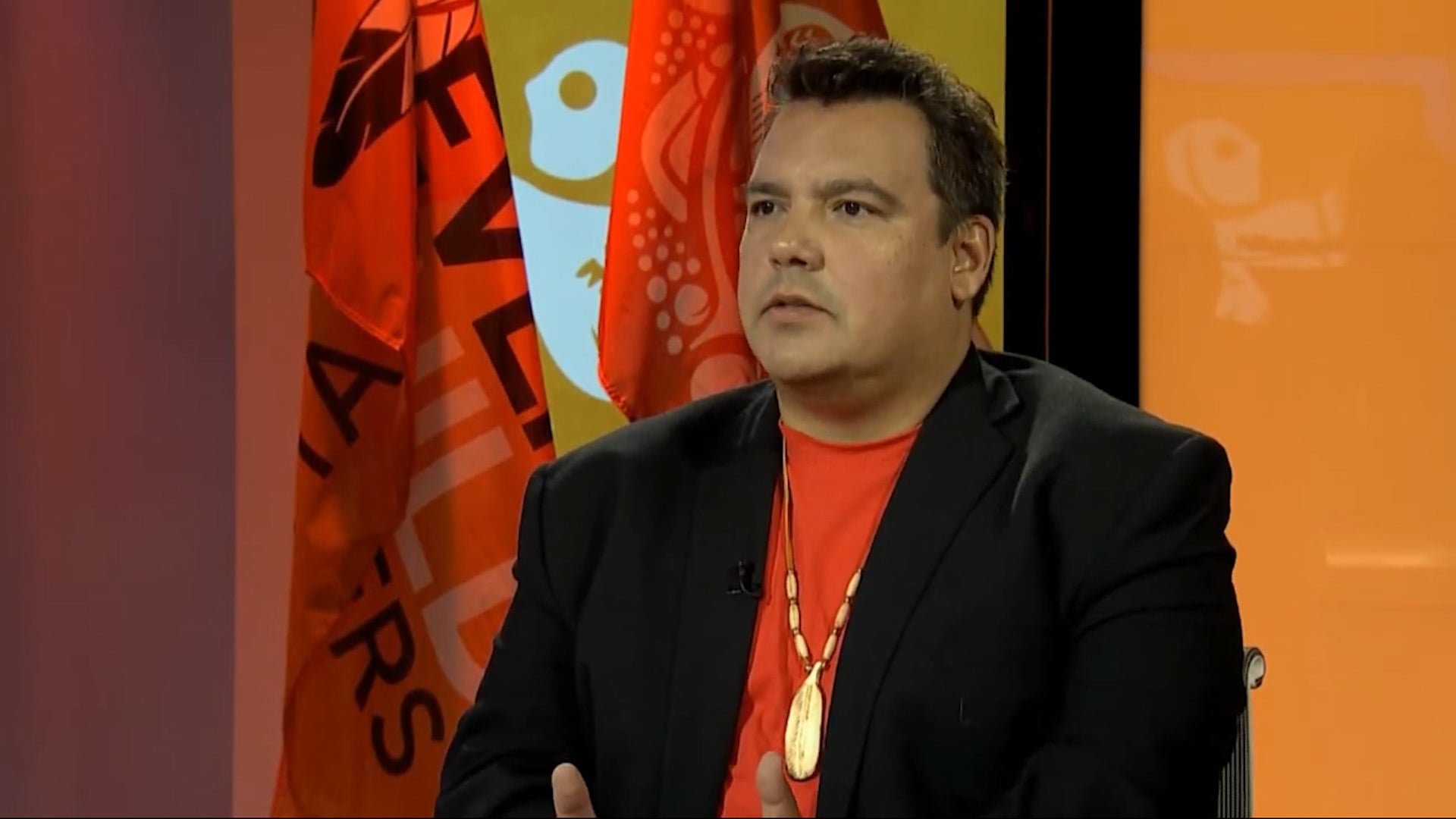
Sinclair remembers one incident in particular that he said showed Trudeau’s duality.
In September 2018, Trudeau lost his temper when he met with two dozen First Nation chiefs, including Federation of Sovereign Indigenous Nations Chief Bobby Cameron, during a Liberal Party cabinet retreat in Saskatoon.
Trudeau became visibly upset when the chiefs took more time than allocated to introduce themselves and discuss their communities’ needs.
A leaked video which ran for three minutes and 38 seconds surfaced on YouTube with the title: Trudeau berating chiefs
“I am really really upset about this,” Trudeau told Cameron. “It was for me to interrupt the previous speakers, but Bobby there shouldn’t have been every single person speaking for eight minutes at this meeting because that is not the spirit of reconciliation and the nation to nation relationship we are supposed to have,” Trudeau is heard saying.
Well the PM did not sound like he wanted to go & was sadly not too gracious, but he is going.
I thank him for his service.
And now…we can finally turn the page—and in doing so, we must keep focus on building a stronger Canada in an increasingly volatile & uncertain world (1/2) https://t.co/VUduZD4IbR
— Jody Wilson-Raybould (JWR), PC, OBC, KC 王州迪 (@Puglaas) January 6, 2025
For Sinclair that moment is what epitomizes Trudeau’s hot and cold version of reconciliation. Trudeau took the time to meet with chiefs, but only gave them an hour to speak.
“On one level, Justin Trudeau was really playing cleanup, but on another level, you shouldn’t really promise what you can’t deliver. It really shows a naivete and a hubris and an arrogance that I think ultimately was Trudeau’s undoing,” Sinclair said.
“I think his heart was good. He had beautiful words. Even had a beautiful Indigenous tattoo on his shoulder. Maybe [he] had a desire to engage the issues of First Nations, Inuit, Métis peoples, but was in way over his head. He did not understand the issues, was not capable of it.”
In an emailed statement on Monday, Cameron said the FSIN emphasized the urgency of ensuring that the incoming leader prioritizes reconciliation, nation-to-nation relationships and fulfilling commitments made while in office.
“Prime Minister Trudeau’s tenure included important steps forward, but there is still much to be done,” said Cameron.
With files from Leanne Sanders




